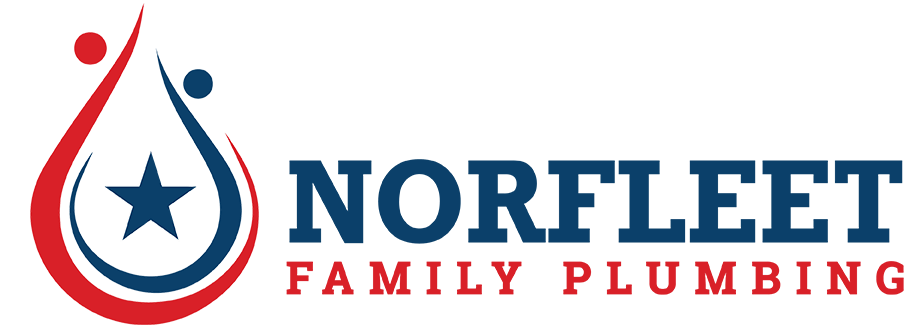What Doesn't Belong In The Garbage Disposal?
Understanding what should and shouldn't go into garbage disposals is vital for maintaining their functionality and preventing plumbing emergencies.
Garbage disposals are helpful appliances that help manage kitchen waste. However, they are designed to handle only some types of food scraps and materials. Misusing garbage disposals can lead to clogs, damage to the unit, and potentially costly plumbing issues. Understanding what should and shouldn't go into garbage disposals is vital for maintaining their functionality and preventing plumbing emergencies.
Fibrous Foods
Fibrous foods are one category that should never be put down a garbage disposal. These include celery, corn husks, onion skins, and artichokes. The long, stringy fibers in these foods can wrap around the disposal's blades, causing them to jam or even break. Over time, these fibers can accumulate and create stubborn clogs in the pipes. A licensed plumber would advise against disposing of these items in the garbage disposal to avoid potential damage and costly repairs.
Starchy Foods
Starchy foods like pasta, rice, and potatoes should be kept from garbage disposal. When these foods come into contact with water, they expand and make a thick, paste-like substance. This paste can clog the disposal and the pipes, leading to blockages that are difficult to remove. Instead of using the disposal, these items should be composted or thrown in the trash. If a clog does occur, contacting a local plumbing company for professional assistance is often the safest solution.
Grease and Oils
Draining grease, oil, or fat down the garbage disposal is a common mistake that can have serious consequences. While these substances may be liquid when hot, they cool and solidify in the pipes, leading to stubborn clogs. The grease can also coat the disposal's blades, reducing its efficiency. A local plumbing expert would recommend collecting grease in a container and depositing it in the trash once it has cooled and solidified.
Coffee Grounds
Although coffee grounds may seem harmless due to their small size, they can cause significant problems in a garbage disposal. The grounds tend to clump together and accumulate in the pipes, potentially leading to blockages. Additionally, coffee grounds can build up in the disposal trap, creating unpleasant odors. Instead of using the disposal, coffee grounds can be composted or applied as a natural fertilizer for plants.
Eggshells
There's a common misconception that eggshells can sharpen garbage disposal blades. In reality, eggshells can be problematic for the appliance. The membrane lining of eggshells can wrap around the disposal's shredder ring, and the shells themselves can contribute to clogs, especially when combined with other debris. A licensed plumber would recommend disposing of eggshells in the compost bin or trash.
Large Bones
While garbage disposals can handle some soft, small bones, larger and harder bones should never be put down the disposal. These can damage the blades, jam the motor, or become lodged in the pipes. Attempting to grind large bones can also strain the motor, potentially leading to premature failure of the unit. For proper disposal of large bones, they should be placed in the trash or used for making stock.
Non-Food Items
It may seem straightforward, but non-food items should never be put in a garbage disposal. This includes paper, plastic, metal, glass, and rubber bands. These materials can damage the blades, jam the motor, or cause severe clogs in the plumbing system. If non-food items accidentally drop into the disposal, it's essential to turn off the unit immediately and contact a local plumbing company for safe removal.
Harsh Chemicals
While not a food item, harsh chemicals should not be used in garbage disposals. Strong drain cleaners, bleach, and other caustic substances can corrode the disposal's metal components and damage the pipes. These chemicals can also hurt the environment when they enter the water system. For cleaning and maintenance, local plumbing experts often suggest a mixture of baking soda and vinegar, followed by hot water.
Paint
Leftover paint should never be disposed of in a garbage disposal or household drain. Paint can clog pipes and contaminate water sources. Additionally, many types of paint contain chemicals that are harmful to the environment. Proper paint disposal typically involves allowing it to dry out completely before placing it in the trash or taking it to a designated hazardous waste disposal facility.
Proper use and maintenance of a garbage disposal can significantly extend its lifespan and prevent many common plumbing issues. When unsure whether an item can safely go down the disposal, it's best to err on the side of caution and dispose of it in the trash or compost. Regular maintenance, such as running cold water before and after use and occasionally grinding ice cubes to clean the blades, can help keep the disposal functioning correctly. Consulting with a licensed plumber or local plumbing expert is always the safest action for any persistent issues or concerns. By being mindful of what goes into the garbage disposal, homeowners can avoid costly repairs and maintain the efficiency of their kitchen plumbing system.
If you need a licensed, bonded, experienced professional for plumbing, sewer camera inspection, or water heater installation, and water heater repair in Chandler, Gilbert, Mesa, Queen Creek, Ahwatukee or San Tan Valley call Norfleet Family Plumbing Heating and Air at 480-681-1764.

